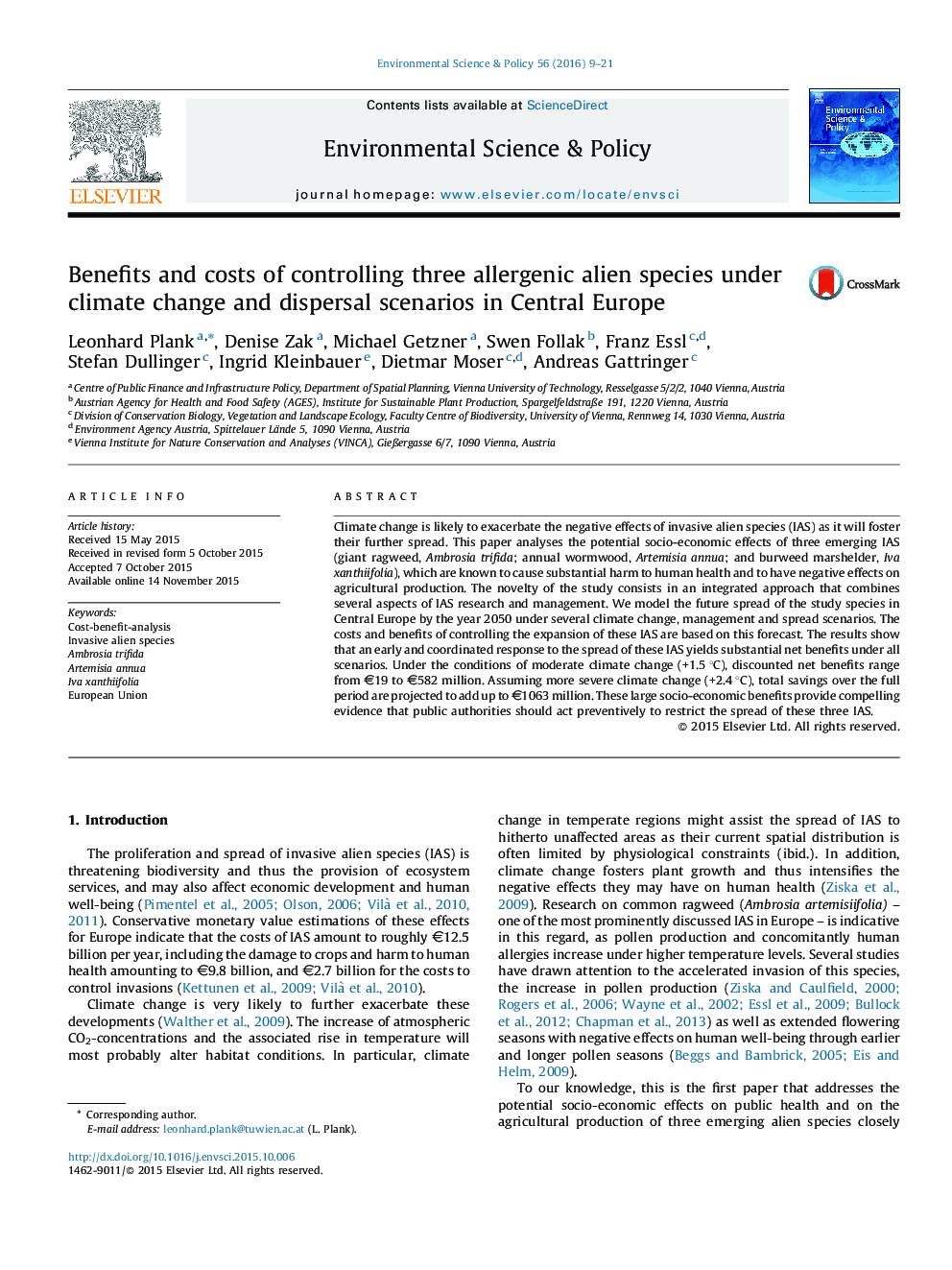| Article ID | Journal | Published Year | Pages | File Type |
|---|---|---|---|---|
| 7467058 | Environmental Science & Policy | 2016 | 13 Pages |
Abstract
Climate change is likely to exacerbate the negative effects of invasive alien species (IAS) as it will foster their further spread. This paper analyses the potential socio-economic effects of three emerging IAS (giant ragweed, Ambrosia trifida; annual wormwood, Artemisia annua; and burweed marshelder, Iva xanthiifolia), which are known to cause substantial harm to human health and to have negative effects on agricultural production. The novelty of the study consists in an integrated approach that combines several aspects of IAS research and management. We model the future spread of the study species in Central Europe by the year 2050 under several climate change, management and spread scenarios. The costs and benefits of controlling the expansion of these IAS are based on this forecast. The results show that an early and coordinated response to the spread of these IAS yields substantial net benefits under all scenarios. Under the conditions of moderate climate change (+1.5 °C), discounted net benefits range from â¬19 to â¬582 million. Assuming more severe climate change (+2.4 °C), total savings over the full period are projected to add up to â¬1063 million. These large socio-economic benefits provide compelling evidence that public authorities should act preventively to restrict the spread of these three IAS.
Related Topics
Physical Sciences and Engineering
Energy
Renewable Energy, Sustainability and the Environment
Authors
Leonhard Plank, Denise Zak, Michael Getzner, Swen Follak, Franz Essl, Stefan Dullinger, Ingrid Kleinbauer, Dietmar Moser, Andreas Gattringer,
